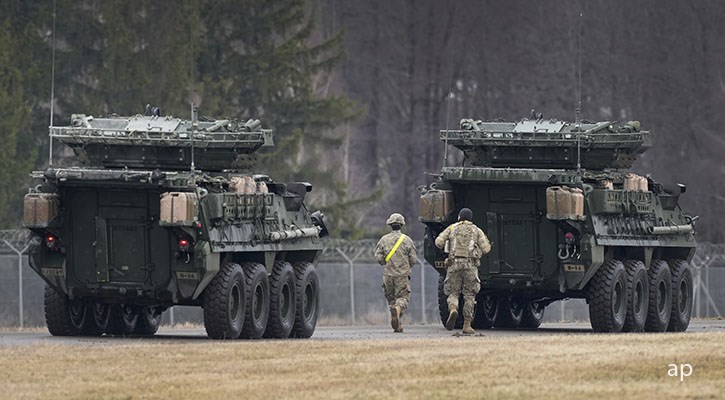Ollie Smith: As Western governments prepare to impose and expand sanctions against a newly belligerent Russia, I'm here to ask Morningstar Investment Management's Global CIO, Dan Kemp, what the knock on effects are for markets, and indeed investors at home. So Dan, thanks for joining us and some of the news emerging from the Ukraine. I'll just start off with the big picture, how have markets reacted broadly to Putin's decision here?
Dan Kemp: Well, hello, Ollie. And you're absolutely right. A big news, for the world today and of course, that's affecting markets as well. And as we look back over what's happened already today, the first thing to say is that it's been really noisy in markets. So overnight, we had sharp falls in Asian equity markets, the U.K. market opened sharply down as did the rest of Europe and more recently, through the course this morning, we've seen some recovery there. U.S. government bonds, which are typically a safe haven in times like this, the price has risen there.
And of course, energy prices, oil prices, particularly have risen. And so that's all understandable and all quite normal, I think the lesson of today as ever, is not to get drawn in as investors to these short term changes. So people who felt that the markets are falling and that they should sell first thing this morning, would have been rapidly licking their wounds as they saw a recovery in markets equally, we may see a further leg down. It is the type of noisy market that draws people in, and whipsaws people into making bad decisions. So a very dangerous time for investors.
Smith: Just sticking with commodities for a second and oil and gas in particular, the price of oil has risen. So what is the precise relationship between a situation like this and commodity prices.
Kemp: Ollie, we have to think about it on a couple of different levels. At the very surface level, then we see commodity prices rise, because Russia is a large supplier of energy, particularly oil and gas into Europe. And so when we see these geopolitical tensions, because people become concerned about supply, and therefore that leads to a price response. But if we dig below that level, of course it becomes much more complicated, as you said, we have to keep an eye on what OPEC is doing, what supply is doing in the U.S. as well.
And also the fact that prices have risen very dramatically over the last 18 months following the trough, the height of the COVID crisis. And so people should never extrapolate future price movements, from either past movements or from these geopolitical events, because it's so easy to get that wrong and to miss a change in sentiment in the market. So although it's not a surprise that prices have risen, don't assume that that will carry on regardless of what Russia does over the next few days and weeks.
Smith: And just finally, in terms of fund management groups, and I suppose your peers in the asset management world, it seems to me at the moment that nobody's really making any assumptions about what will happen next, even though Putin has clearly signalled his intent. Do you personally feel certain about an outcome either way here? Do you have a view on it?
Kemp: Ollie, you can never be certain about the outcome. This is one of the great challenges of all investments, that as you look ahead, the future is uncertain. We believe that there may be a future that we can uncover through enough analysis. But that's simply not the case. We always have to think about the future as a range of probabilities. And so as we talk about other fund managers who haven't reacted yet, then that's probably a good thing. They're thinking about these range of outcomes.
They're thinking hopefully longer term beyond these latest market wobbles and really into the deep value that we're seeing in markets and trying to understand what the fundamental drivers of returns are? So no, you can't ever predict the future, particularly over the short term, particularly when it comes to politics and energy and all that we're seeing around that noise at the moment.
But what you can do is look at individual companies, look at asset classes, look a long way into the future, and what the expected returns are from the fundamental returns of these businesses, when you're given that longer timescale. So always focus on the long term. Don't get distracted by the market noise and don't make quick decisions that you may live to regret later on.
Smith: Absolutely. Behavioural lesson for everyone. And for more information and analysis of the Russia Ukraine crisis, check out Morningstar.co.uk. Until next time, thanks to Dan Kemp. I've been Ollie Smith from Morningstar.



















